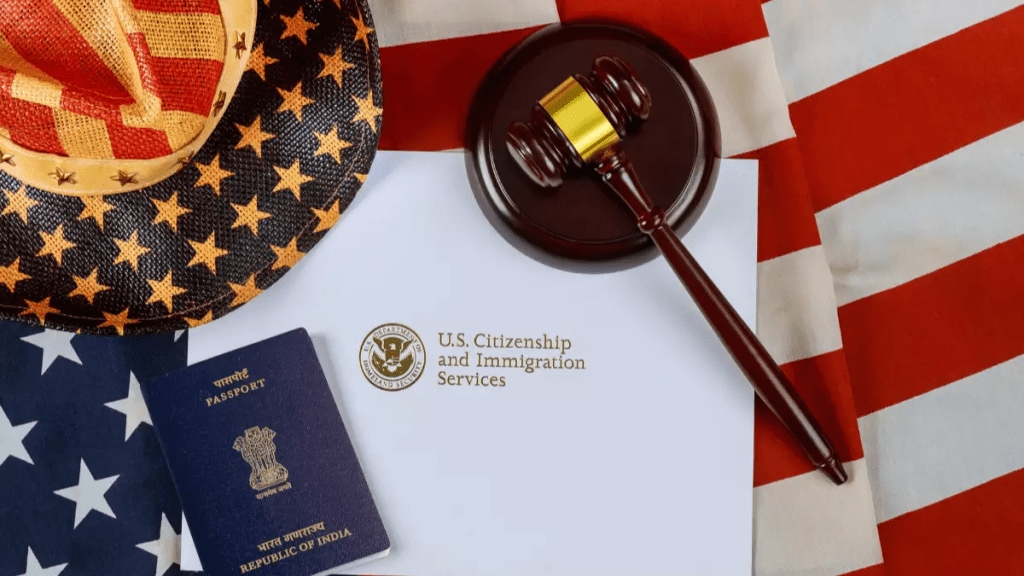Joining forces against the Trump administration, three Indian and two Chinese students have legally challenged the US president’s seemingly endless path of F-1 student visa terminations. As Donald Trump stands tall on his mass deportation promise in his second presidential term, a group of international students has filed a class action lawsuit before the US District Court in New Hampshire.
Through their legal team, the quintet argued that the unilateral termination of “hundreds, if not thousands” of F-1 student visa status has clouded foreign students’ academic future with uncertainty. According to Times of India’s correspondent in Washington, the students suing the Trump administration are pushing for terminated student visas (including their own) to be reinstated, and detentions and deportations to be stopped.
“These injuries are real… Their graduation is unpredictable and unlikely unless this Court intervenes,” the lawsuit pressed. The plaintiffs’ lawyers alleged that the government did not send them any formal notice before cancelling their student visas.
Who are the Indian and Chinese students suing Trump admin over F-1 visa terminations
The three Indian plaintiffs behind the lawsuit are Rivier University (New Hampshire) students Manikanta Pasula, Linkhith Babu Gorrela and Thanuj Kumar Gummadavelli. Gorella’s graduation date for his Master’s program is listed as May 20, 2025. Meanwhile, Gummadavelli and Pasula are left with just one semester before their Master’s degree is completed.
On the other hand, Hangrui Zhang and Haoyang An are the two Chinese plaintiffs, who are Worcester Polytechnic Institute (Massachusetts) graduates. The lawsuit notes that the former’s only source of income is his research assistantship, which he can no longer participate in due to visa revocation. The latter, who invested $329,196 in his US education, is also left with no choice but to drop dreams of finishing his Master’s degree.
In their suit, the students claimed that their visa revocation had not only put them at the verge of detention and deportation, but also subjected them to “severe financial and academic hardship.” The plaintiffs also established that they were unable to work in the Optional Practical Training (OPT) program after graduation. Their degrees have also reportedly been withheld from them.
Why were the international students’ visas revoked?
Indian computer engineering student Manikanta Pasula was arrested and charged with driving without a valid US license. According to New Hampshire law, an International Driving Permit can be used for up to 60 days after the foreign student arrives in the US. Despite being within that window, Pasula had to plead guilty and pay a $248 fine. He has since reportedly obtained a valid US driver’s license.
However, that wasn’t enough to stop the State Department from revoking his student visa. He was notified of the same through an email from Rivier University. The US Consulate General, Mumbai, issued a separate email, confirming his visa had been revoked. The official notice also warned him that “remaining in the United States without a lawful immigration status can result in fines, detention, and/or deportation.”
As for the other Indian students, Thanuj Kumar was charged with speeding and a traffic misdemeanour as he failed to carry a valid US driver’s license. Unlike Pasula, his 60-day window had been surpassed. Gorrela, too, was using his international driving permit after the window had passed. Although they completed their fine payments and got their driving licenses, the Department of Homeland Security cancelled their student status.
The Chinese plaintiffs listed in the lawsuit faced similar consequences. Haoyang was charged with a misdemenaour for driving without an active insurance policy in Massachusetts. Hangrui also clashed with the law over a misdemeanour in a situation fuelled by a misunderstanding.
Their lawsuit claims, “Plaintiffs and proposed class members have maintained their student status by making progress toward completing their course of study, not engaging in unauthorized employment, and not having any conviction for a crime of violence for which a sentence of more than one year imprisonment may be imposed.”

